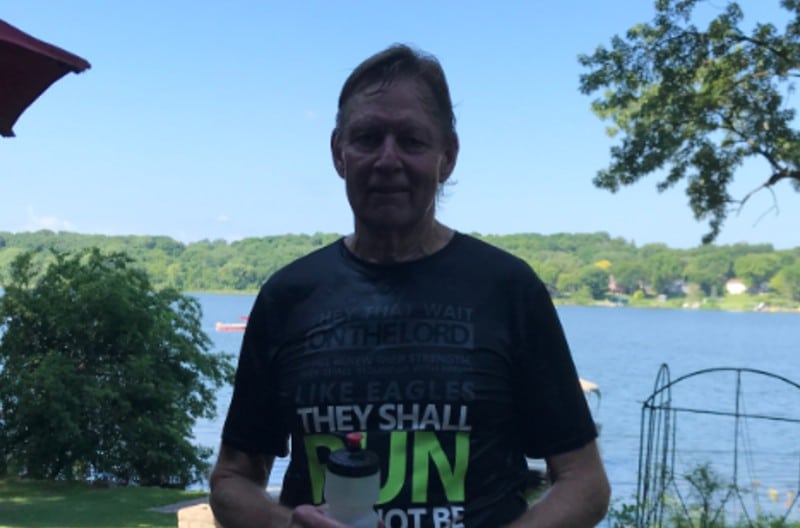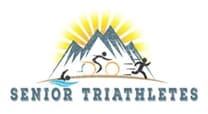Pros and Cons of Running in the Heat

When first thinking about this post, I expected to find plenty of support for not running in the heat.
In the past, I had done almost anything to avoid running in hot, humid weather. This included getting up before the crack of dawn to complete my run while it was still reasonably cool. Or, I would go inside for a run on a treadmill or an indoor track.
This made sure I got in the miles. However, I now realize I missed out on the benefits of waiting until later in the day to complete my run.
In this post, I share what I have gleaned about the pros and cons of running in the heat. After reading it, you will understand why I am now more inclined to ignore the temperature when deciding when and where to get outside for a summer run – with my water bottle, of course.
Benefits of Running in the Heat
Science shows that running in the heat can help us prepare for races that take place in hot weather. This is not surprising.
However, what is surprising is that the benefits carryover to those races that take place in cooler weather. Beyond this, running in high temperatures can lead to improved overall fitness even if you are not racing this year.
The key, however, is to be careful when running in the heat. More about that under the ‘Cons’ section.
So, what are the benefits?
Adapt to racing in high temperature
Running in the heat helps the body adapt to the heat, or ‘acclimatize’. This is especially important if you have races that will take place in warmer climates.
In an article titled “Coping with Heat for Summer Training“, the Barbell Logic Team writes “One of the best ways to insulate yourself against heat-related problems is acclimatization, allowing your body’s built-in controls to adapt to higher temperatures.”
“Aerobically fit persons who are heat acclimatized and fully hydrated have less body heat storage and perform optimally during exercise-heat stress.”
Michael N. Sawka, C. Bruce Wenger, Andrew J. Young, and Kent B. Pandolf, (1993), ‘Physiological Responses to Exercise in the Heat’ in Marriott BM, editor, Nutritional Needs in Hot Environments: Applications for Military Personnel in Field Operations. Washington (DC): Available from National Academies Press (US).
Accelerate overall fitness gains
A second benefit of running in high temperatures is that this training can speed up fitness gains, even more so than training at a higher altitude.
An article in the Journal of Applied Physiology titled Heat acclimation improves exercise performance (Lorenzo et al., 2010) reports the major benefits of endurance training in high temperatures as:
- Increased maximum cardiac output (measured in liters/minute of blood flow) and increased blood plasma volume, both contributing to an increase in VO2max. (VO2max is the maximum rate of oxygen consumption, often referred to as the size of one’s ‘engine’.)
- Increased lactate threshold in cooler temperatures. (In practical terms, the lactate threshold relates to the pace one can sustain for an extended period. A higher threshold implies a higher speed for swimming, biking, and running.)
These benefits also lead to improved performance in cooler conditions. However, the benefits are finite, lasting for 1 to 2 weeks.
Click here if you want to read the technical details of the study that led to these conclusions.
Cons of Running in the Heat
Running in high temperature must be done carefully. Failing to do so can lead to physical and psychological effects that offset potential fitness gains.
Greater discomfort
Running in high heat can be just plain uncomfortable. With more blood being directed toward cooling our body, less is available for our muscles. Trying to maintain a running pace typical of cooler temperatures can lead to a spike in our heart rate and labored breathing.
Nevertheless, having learned of the important benefits of running in the heat and humidity, I slow down and push through the discomfort more easily. However, if it’s too much to handle, look for some firm that specializes in AC installation in Manassas, VA or wherever you are located, so that you can return to the cool and comfortable room to relax and relieve your discomfort.
Risk of heat exhaustion
Without properly hydrating or adjusting your training plan, high temperature can lead to heat exhaustion or muscle cramping.
In “Physiological Responses to Exercise in the Heat“, authors Michael N. Sawka et al. (1993) included among their conclusions:
“Dehydration from sweat loss increases plasma tonicity and decreases blood volume, both of which reduce heat loss and result in elevated core temperature levels during exercise-heat stress.”
More sweat
Sweat is our body’s way of controlling its core temperature. And, my sweat mechanism works very well.
During a run in humid heat, I quickly become a sweaty mess. On some days, this includes sloshing wet shoes. (There is hardly anything more unsettling than to see my wet shoe prints on the otherwise dry running trail.)
The problem with sweaty running gear is that it can rub against the skin, laying the groundwork for painful abrasions.
Tips for Safely Running in Heat and Humidity
The conclusion of an article in Podium Runner is “training in heated conditions, two to three times per week for 20 to 90 minutes, can produce a multitude of beneficial training effects.” The benefits include those listed above.
However, consider the following to gain the most and avoid injury from this training.
Avoid becoming dehydrated
For seniors, it is even more important to be conscious of our hydration. In Six Principles of Triathlon Training for Seniors, I noted that our thirst sensation becomes less sensitive with age. Waiting until we become thirsty can give a false sense of hydration.
First, it is important to begin the run properly hydrated. The most reliable way to ensure you are hydrated is to observe the color of your urine. If adequately hydrated, your urine will be clear to light yellow.
Then, during the run, Motion Works Physical Therapy recommends drinking 6-8 ounces of water or sports drink every 15-20 minutes.
Finally, be sure to rehydrate after the run. An approach to rehydrating recommended by Motion Works is to weigh yourself before (dry clothing) and after a run (sweaty clothing) without clothing to determine the water lost during the run. Knowing the amount of fluid lost during a run will help determine how much water to drink after the run.
Consider electrolyte supplements . . . carefully
Electrolyte supplements may be beneficial during acclimatization. Hyponatremia, a condition resulting from electrolyte depletion caused by consuming too much water during exercise, can be avoided by consuming low doses of electrolytes (e.g. sodium, potassium, and chloride are the main ones) along with water during exercise.
However, remember that our bodies have built mechanisms to control the proper amounts of electrolytes. It is foolish, even unsafe, to consume too much of these necessary elements.
Supplementing to avoid becoming seriously depleted is a more appropriate strategy. An article by Dr. William Misner, former Director of Research & Development at Hammer Nutrition, titled “The Endurolytes Rationale” concluded that “low dose repletion rate generates electrolyte balance [homeostasis] without interfering with the electrolyte levels delicately monitored by natural endogenous processes”.

Use the right gear
Using lightweight, light colored (to reflect the sun) wicking fabrics can promote evaporative cooling and reduce irritation from sweat-soaked running gear.
I have found that snug fitting shirts that cling to my body prevent the irritation when wet. Conversely, even loose fitting, wicking fabrics rub against sensitive parts of the body making for a painful post-run experience. Tape also works but can fall off when it becomes wet.
Pay attention to your form
On a recent run, I realized that my running form had worsened as I became tired. I now pay more attention to my posture to maximize the benefit of the run.
Did I Miss Anything?
What is your experience with running in the heat? At what point do you call it too hot to run outside and move indoors?
I know that many of you are more accomplished runners than me, so will appreciate your comments.
